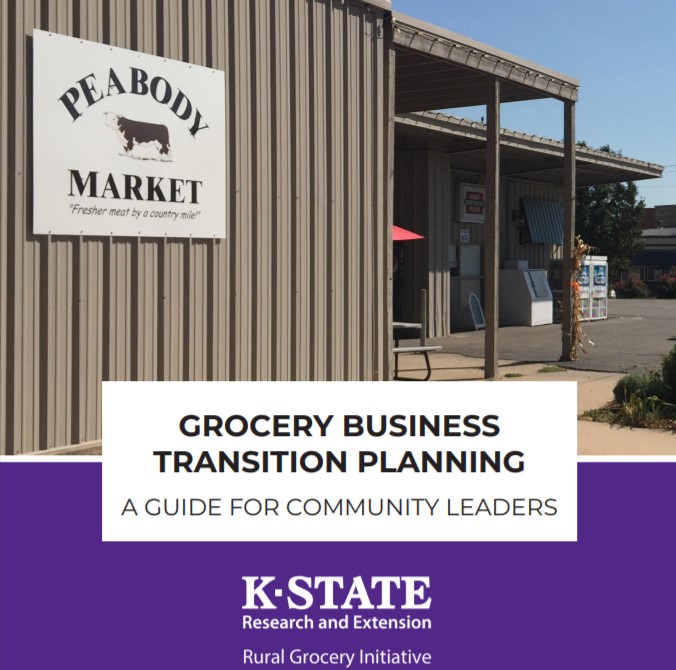July 13, 2021
Grocery Business Transition Planning Guide Now Available

The Rural Grocery Initiative is committed to supporting rural grocery stores. Rural grocery stores provide many benefits - they generate economic benefits, support social connection by serving as a gathering space, and provide the best source of healthy, affordable food for miles.
Unfortunately, between 2008 and 2018, more than 50 rural grocery stores in Kansas closed. This trend is not likely to end soon: in a recent survey of rural Kansas grocers, nearly 50% of respondents indicated that they intend to retire in the next five years. When an owner retires or leaves their business without an exit strategy in place, the store often abruptly closes and the community loses out.
This is why over the past year, the Rural Grocery Initiative has worked extensively on the topic of grocery business transition planning through the Keeping Groceries Alive webinar series and the Grocery Business Transition Mentorship Program. This project was sponsored by the Kauffman Foundation as part of their Heartland Strategy to support rural business owners in the Heartland.
We’ve learned that community leaders are critical supporters and champions for rural grocery stores. They play an important role in helping a business owner think through their transition plan ahead of retirement. To assist community leaders in this task, the Rural Grocery Initiative developed Grocery Business Transition Planning: A Guide for Community Leaders. This guide walks through key considerations when preparing for a business transition. Topics include the benefits of hometown grocery stores, grocery business transition planning 101, rural grocery ownership models, funding resources and more.
Copies of the guide have been sent to community leaders across the state, including economic developers and chambers of commerce. The guide can be found on the Rural Grocery Initiative’s website and a limited number of printed copies are available for grocery stores. Please contact the Rural Grocery Initiative at rgi@ksu.edu, if there is a community in your district or county that would benefit from a copy of this guide.